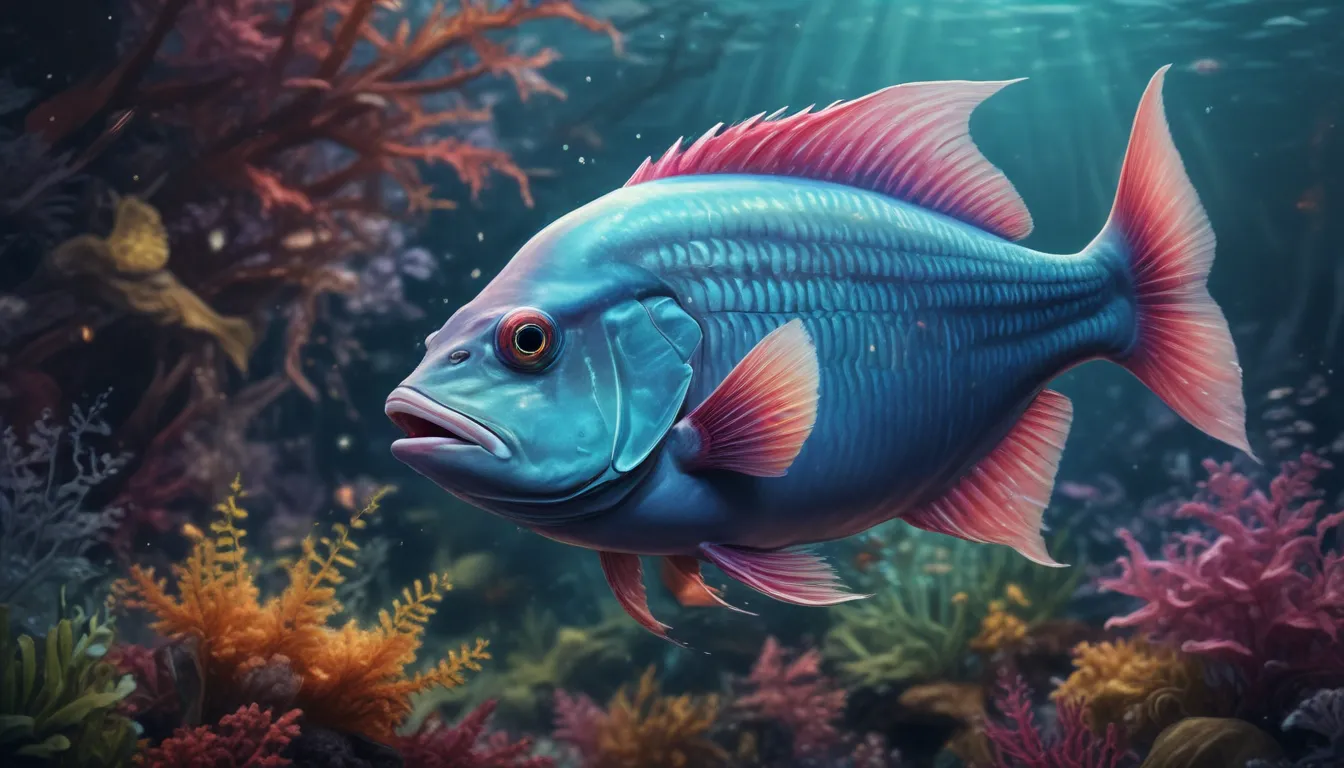The pictures we use in our articles might not show exactly what the words say. We choose these pictures to make you interested in reading more. The pictures work together with the words but don’t take their place. The words still tell you the important facts.
Unicorn fish, also known as Naso fish, are captivating creatures that inhabit the coral reefs of the Indo-Pacific region, mesmerizing divers and marine enthusiasts with their vibrant colors and unique horn-like projections. In this article, we will delve into some interesting facts about unicorn fish that will not only capture your imagination but also deepen your understanding of these extraordinary creatures. From their physical characteristics to their feeding habits and social behaviors, we will explore the intricate world of unicorn fish and uncover the mysteries behind these mythical-looking creatures.
Unlocking the Magic of Unicorn Fish
The Enigmatic Unicorn Fish
Unicorn fish, also known as surgeonfish, are characterized by their horn-like projection on their forehead, resembling a unicorn's horn. These fascinating creatures inhabit the tropical waters of coral reefs in the Indo-Pacific region, including the Red Sea, Indian Ocean, and the Pacific Ocean. With over 50 species, each displaying unique coloration and body shapes, unicorn fish add a splash of vibrancy to the marine ecosystem.
A Closer Look at Unicorn Fish
One distinctive feature of unicorn fish is their blade-like spine located on their tails, which serves as a defense mechanism against predators. These herbivores primarily feed on algae and seagrass, using their specialized teeth to graze on vegetation. Despite their impressive size of up to 18 inches in some species, unicorn fish have a relatively short lifespan of 8-12 years.
Social Creatures of the Sea
Unicorn fish are social animals that often form schools or small groups, providing protection from predators and enhancing foraging opportunities. Their acrobatic swimming abilities, powered by dorsal and anal fins, allow them to swiftly maneuver through the water, making sudden turns and evading threats. Contrary to popular belief, the horn-like projection on unicorn fish's foreheads is not a weapon but rather an extension of their bone structure.
Guardians of the Reef
As herbivores, unicorn fish play a vital role in coral reef ecosystems by controlling algal growth, maintaining reef balance, and contributing to overall reef health. Their excellent vision enables them to spot predators and navigate complex reef environments. They also have a symbiotic relationship with cleaner fish, benefiting from the removal of parasites and dead skin from their bodies.
Unveiling the Beauty of Unicorn Fish
A Kaleidoscope of Colors
Unicorn fish have the ability to change color, a phenomenon used for camouflage or communication with other fish. These color changes are often observed during courtship or encounters. Their visually striking appearance, coupled with their graceful movements, makes unicorn fish a favorite among divers and underwater enthusiasts.
Life Cycle of a Unicorn Fish
Unicorn fish reach sexual maturity around two years of age and reproduce by releasing eggs and sperm into the water for fertilization. The eggs hatch into larvae, which then settle on the reef to grow into adult fish. Due to their specialized dietary requirements and large space needs, unicorn fish are not typically kept as aquarium pets.
Embracing the Diversity of Marine Life
Understanding unicorn fish contributes to the appreciation of the biodiversity of our oceans and the intricate web of life beneath the surface. By observing these captivating creatures in their natural habitat, we gain a deeper insight into the delicate balance of coral reef ecosystems and the importance of conservation efforts.
FAQ: Unraveling the Mysteries of Unicorn Fish
Q: What is the unicorn fish?
A: The unicorn fish, also known as the surgeonfish, is a tropical marine fish characterized by its elongated body, colorful appearance, and a horn-like projection on its forehead.
Q: Where are unicorn fish found?
A: Unicorn fish are predominantly found in the warm waters of the Indo-Pacific region, including the Red Sea, the Arabian Sea, and the waters around Australia, Southeast Asia, and the Pacific Islands.
Q: What do unicorn fish eat?
A: Unicorn fish primarily feed on algae, seagrass, and small invertebrates, contributing to the health of coral reef ecosystems.
Q: How big do unicorn fish grow?
A: Unicorn fish can vary in size depending on the species, with some larger species reaching up to 2 feet in length.
Q: Are unicorn fish aggressive?
A: Unicorn fish are generally not aggressive towards humans but may exhibit defensive behavior if threatened.
Q: Can unicorn fish change color?
A: Yes, unicorn fish have the ability to change color for camouflage or communication purposes.
Q: Do unicorn fish have predators?
A: Unicorn fish face threats from large predatory fish and human activities that harm coral reef habitats.
Q: Can unicorn fish be kept as pets?
A: While it may be possible to keep unicorn fish in captivity, they require specific conditions and care to thrive.
Q: Are unicorn fish endangered?
A: Some species of unicorn fish are listed as vulnerable or near threatened due to various threats to their habitats.
Delve Deeper into the Ocean’s Wonders
Unicorn fish are just one example of the diverse and enchanting marine life waiting to be discovered in our oceans. Whether exploring vibrant reefs in the Gulf of Aqaba or learning about Hawaii's charismatic state fish, there is no shortage of underwater marvels to admire. As we continue to uncover the mysteries of the deep blue sea, let us immerse ourselves in the beauty and complexity of nature's creations.
Join Us in Exploring the Depths
Our commitment to delivering accurate and engaging content stems from the contributions of real users like you. Each fact shared on our site undergoes rigorous review by our dedicated editors to ensure credibility and authenticity. Trust in our dedication to quality and authenticity as you embark on a journey of exploration and learning with us. The ocean awaits—with its wonders, mysteries, and treasures—let's dive in together.






